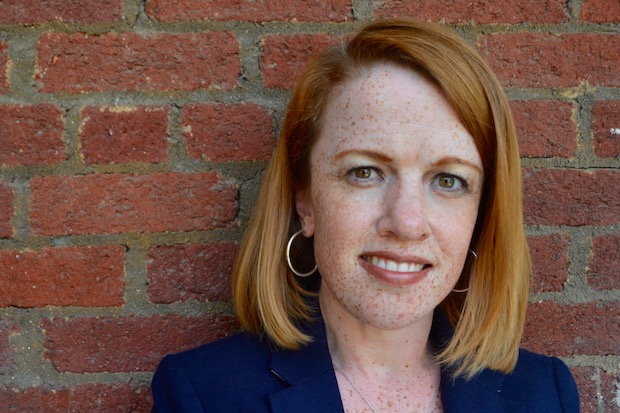Rebecca Cokley honored with Richman Fellowship

Rebecca Cokley
Disability rights advocate Rebecca Cokley was formally recognized as the 2020 Richman Distinguished Fellow in Public Life and delivered a lecture hosted by Brandeis last week.
The Richman Fellowship recognizes individuals active in public life whose contributions have had a significant impact on improving American society, strengthening democratic institutions, advancing social justice or increasing opportunities for all citizens. The annual award includes a $25,000 prize. It also typically includes a 3-day, in-person residency on the Brandeis campus and an award ceremony. These components were conducted virtually this year due to COVID-19.
Rebecca Cokley is the first program officer to lead a U.S. based disability rights portfolio for the Office of the President at the Ford Foundation. From 2017 to 2020, Cokley was director of the Disability Justice Initiative at the Center for American Progress, which focuses on expanding opportunities for people with disabilities and building inclusive policies. She previously served four years as the executive director of the National Council on Disability, an independent agency charged with advising Congress and the White House on issues of national disability public policy.
She got her start in the advocacy field at the Institute for Educational Leadership, where she created resources designed to empower and educate youth with disabilities and their adult allies. She also previously served in roles in the Departments of Education and Health and Human Services in the Obama administration.
In her lecture Wednesday, March 24, Cokley described her personal experiences with disabilities as a person with dwarfism and the daughter of a father who was paralyzed and used a wheelchair.
She focused much of the presentation on the issue of the right to vote, and the challenges that many disabled people face in casting a ballot that others may not consider. For example, many polling places are in churches, Cokley said, which are exempt from ADA compliance. While voting by mail makes voting easier for some, it's an option that doesn't work for people who cannot read a paper ballot, or for people who do not have the dexterity to handle a ballot, or for people who cannot visually and orally verify a ballot.
"We continue to have this battle about voting accessibility versus voting security, as though allowing people with disabilities the ability to vote, however, they need to, would fly in the face of our national security," Cokley said. "Why, instead, do we not make a significant investment in voting technology to ensure that every person who can vote, can access a fair, private, secure and accessible vote?"
Although turnouts were historically high in the 2020 election, Cokley said people should be asking: Who wasn't able to vote?
"Was it your neighbor who couldn't get to the polls and wasn't eligible for exclusive vote by mail policies in your state? Was it your cousin who works odd hours and couldn't take advantage of the few hours of early voting that were available? Was it your friend who, as a returning citizen, has been disenfranchised?" Cokley said. "How many more people would be able to vote if we had a truly inclusive democracy, and what would it mean for the direction of our nation, for who are in decision making roles, and for what a democracy for the people by the people could truly look like when all of the people are accommodated?"
Brandeis President Ron Liebowitz introduced the event Wednesday, then Cokley was formally presented her Richman Fellowship certificate by Provost Carol Fierke, who said that Cokley's work "recognizes that disability rights play out across social issues, including those related to education, poverty, immigration, rights of parents with disabilities and police violence."
Cokley was introduced by Monika Mitra, the Nancy Lurie Marks Associate Professor of Disability Policy and director of the Lurie Institute for Disability Policy.
"Rebecca Cokley's leadership embodies the rallying cry of the disability rights movement: Nothing about us without us," Mitra said. "Her work has helped to ensure that our country's democratic institutions increasingly represent all Americans, including Americans with disabilities. Throughout her career, Rebecca has worked tirelessly to protect the civil rights of people with disabilities and those from other marginalized communities."
In addition to the keynote lecture, Cokley interacted with a number of students on campus through visits to diverse classes, including Sociology of Disability (HSSP 192b), Disability Cultures (NEJS 184b), and a Heller School doctoral research seminar on Disability, Health and Disparities (HS 607C 1). She also had the opportunity to share her policy expertise and personal experiences with graduate students in the Genetic Counseling Program and undergraduate fellows of the Lurie Institute for Disability Policy, which hosted Cokley for her residency.
The Richman Fellowship is hosted by the International Center for Ethics, Justice and Public Life on behalf of the Office of Brandeis President Ron Liebowitz.
Categories: Alumni, Humanities and Social Sciences





